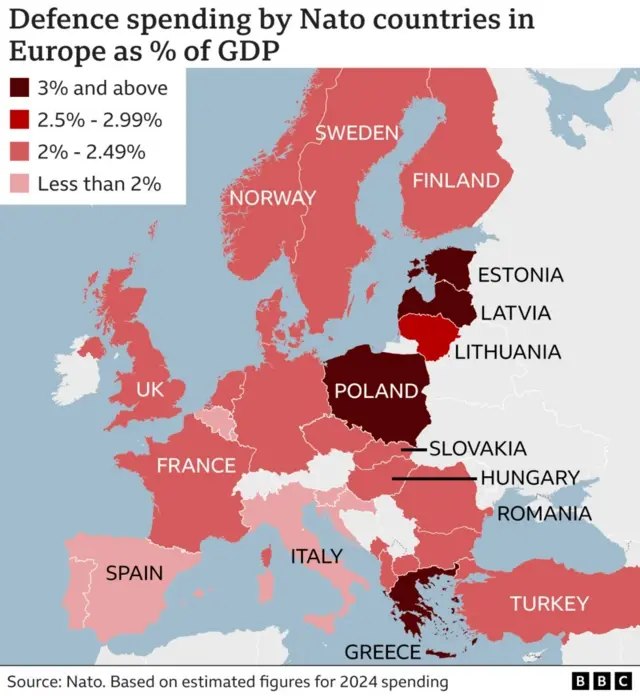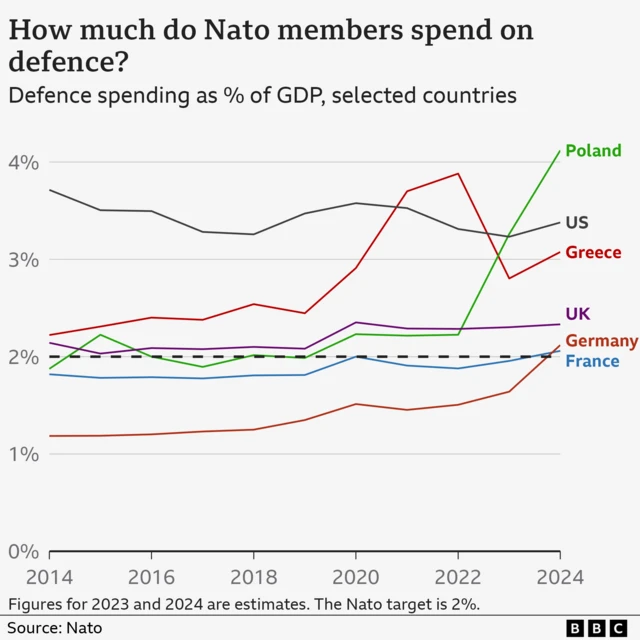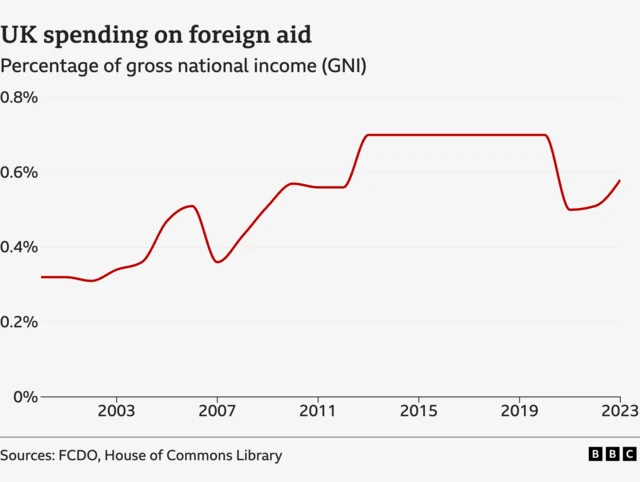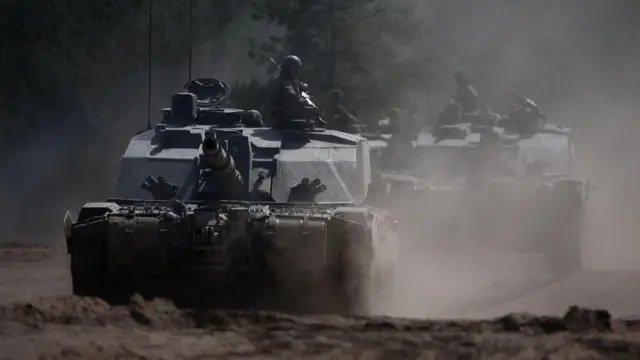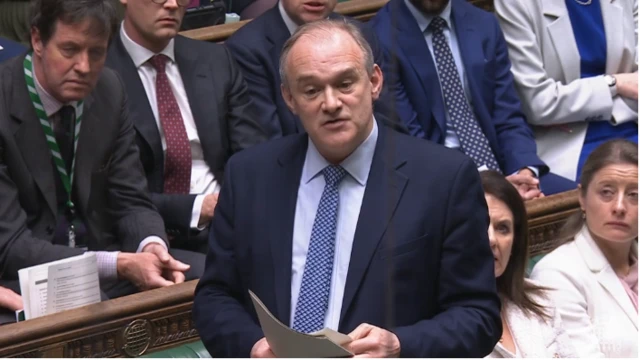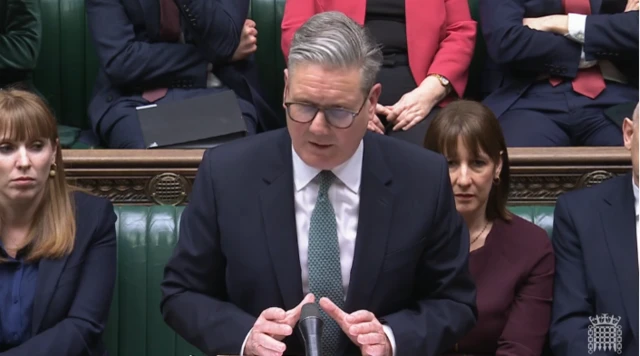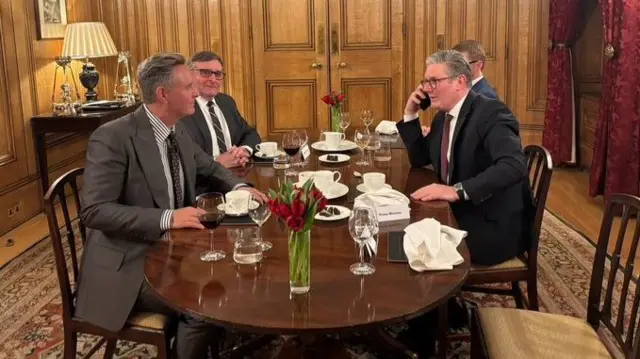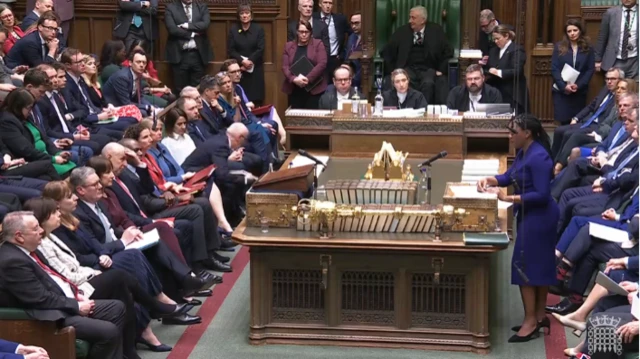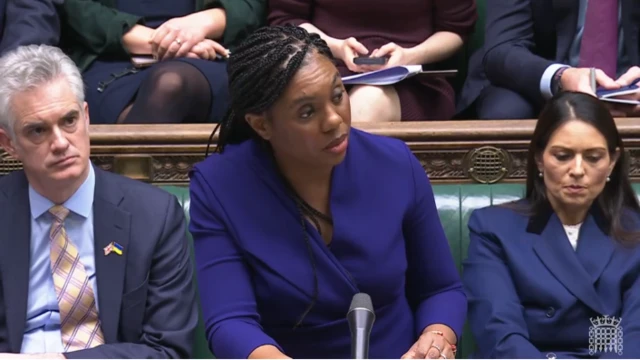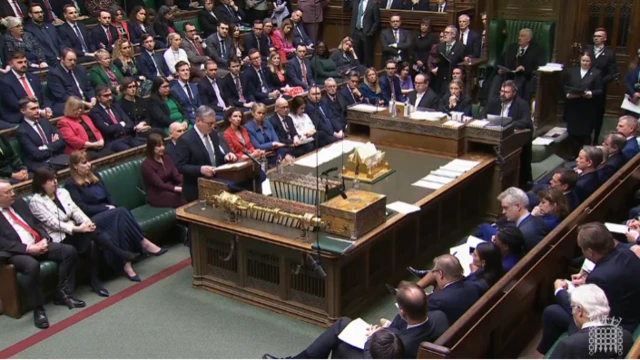
Starmer will hope defence boost gets breadth of support - at home and in the USpublished at 14:26 GMT 25 February
 Chris Mason
Chris Mason
Political editor
This is a statement that matters for its content and its promises but also for its wider pitch.
The shift of budgets from aid to defence will be cheered by some and criticised by others, perhaps particularly some on the left.
And it is rather different from what Labour said in its election manifesto less than a year ago, which said: "Labour is committed to restoring development spending at the level of 0.7% of gross national income as soon as fiscal circumstances allow."
The prime minister did say today he hoped in the future things might change, but acknowledged "it remains a cut, I will not pretend otherwise".
But the bigger picture is this: an argument that says the world has changed, the relatively benign international picture imagined by some in the 1990s after the fall of the Berlin Wall, is gone and more money needs to be spent keeping us safe.
"The historical load is not as light as it once was" is how Keir Starmer put it and so there would be "the biggest sustained increase in defence spending since the end of the Cold War".
In finding the money from cutting international aid the prime minister avoids awkward domestic trade offs - having to tax more or cut things people might notice day to day.
There are those already saying it is a false economy to cut aid spending - the charity Save the Children are saying so, for instance.
But he will hope there is a breadth of political and public support, as a wider debate about how future proposed increases are paid for begins.
It also - crucially - gives him something in his back pocket to take with him to the White House, where increasing defence spending and cutting aid spending are likely to be given a warm reception.
